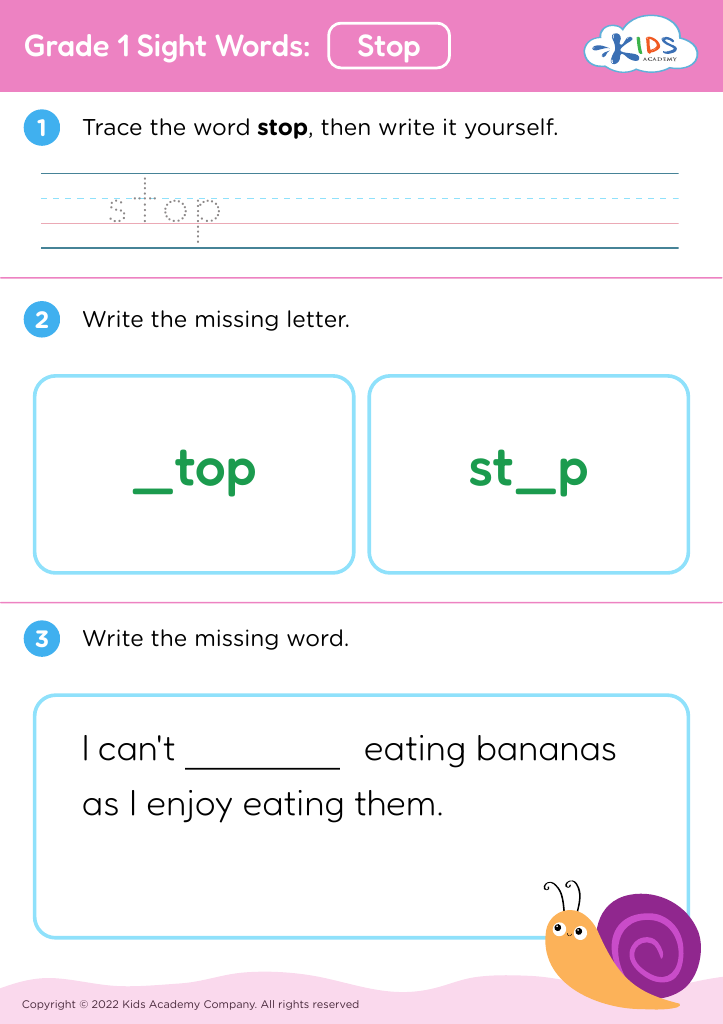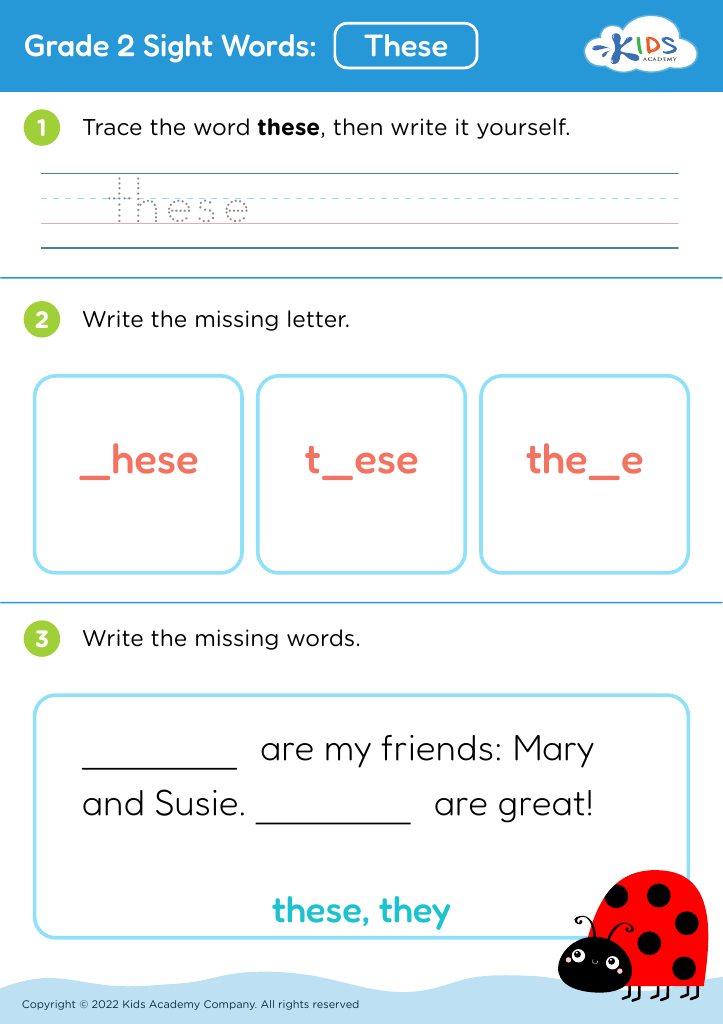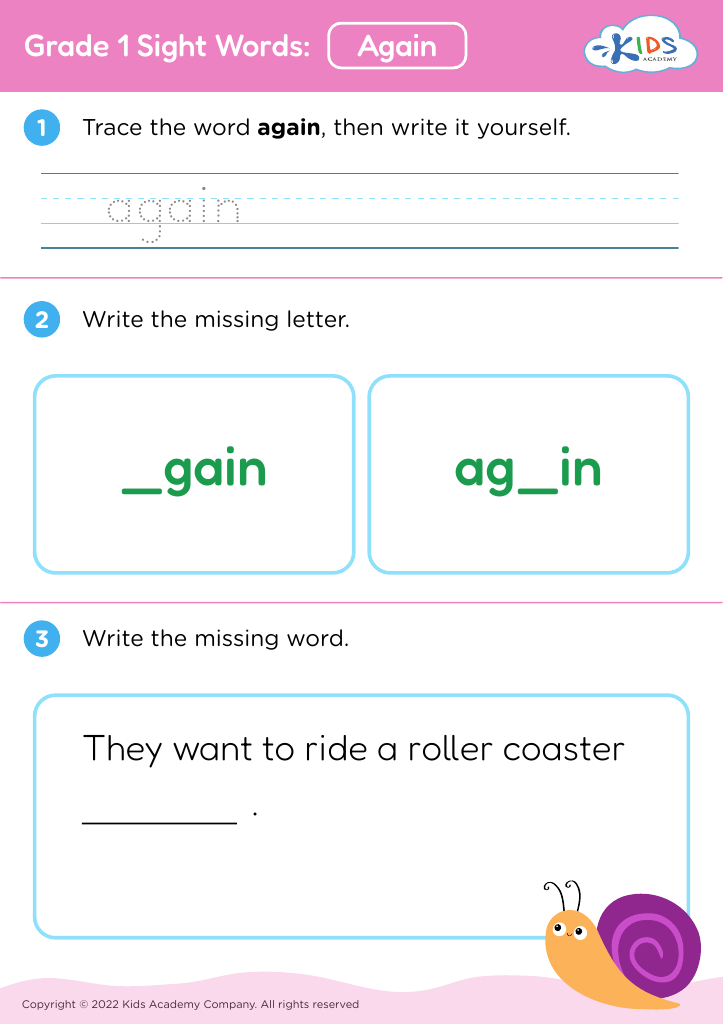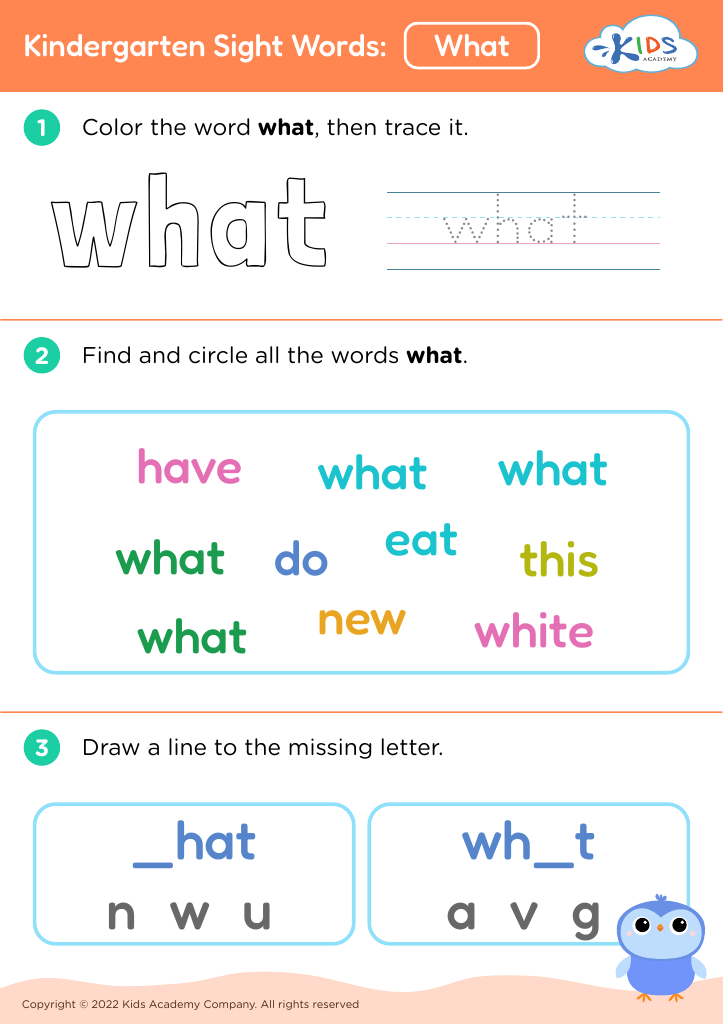Understanding patterns Building Vocabulary Worksheets for Ages 6-8
5 filtered results
-
From - To
Discover our engaging "Understanding Patterns Building Vocabulary Worksheets" designed for children aged 6-8. These worksheets focus on enhancing vocabulary while helping kids recognize and understand various patterns in language. Each activity is thoughtfully crafted to encourage critical thinking and improve comprehension skills through fun and interactive exercises. Young learners will explore word relationships, synonyms, antonyms, and more, all while developing a strong foundation for reading and communication. Boost your child's literacy and cognitive abilities with these colorful, easy-to-use worksheets, perfect for home or classroom use. Start fostering a love for learning and language skills today with our comprehensive resources!
Understanding patterns and building vocabulary are crucial skills for children aged 6-8, and parents as well as teachers should prioritize them for several reasons. First, grasping patterns enhances cognitive development. Recognizing patterns in numbers, letters, or shapes helps children make connections in their learning, which lays a foundation for more complex mathematical concepts and scientific reasoning. For instance, identifying patterns in math leads to problem-solving skills that are essential for future academic success.
Building vocabulary during this age period is equally vital as it enhances communication skills and literacy. A robust vocabulary allows children to express their thoughts more clearly, engage in discussions, and comprehend reading materials better. The more words they know, the better they can describe their experiences and understand what they read.
Furthermore, both skills empower children to become more confident learners. When they can recognize patterns and articulate their ideas effectively, they are more likely to participate in classroom activities and discussions. This engagement fosters a love for learning, setting a positive tone for their educational journey. By focusing on these foundational skills, parents and teachers provide children the necessary tools to thrive academically and socially, ensuring a well-rounded development.









.jpg)










